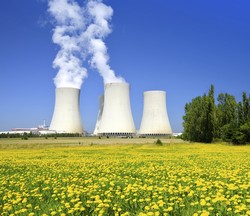New fuels for Generation IV reactors
The European Commission foresees an ongoing need for fission reactors as part of meeting greenhouse gas reduction targets. Yet, the proposed 600 MWe Generation IV fast-neutron system needs substantial research and development for feasibility demonstration and for safety regulation compliance. The EU-funded ASGARD(opens in new window) (Advanced fuels for Generation IV reactors: Reprocessing and dissolution) project conducted some of the necessary research. Specifically, the team studied fabrication and reprocessing of new fuels, with an emphasis on sustainability, and also coolant technologies. A goal was bridging the often separate domains of physics involved. Research consisted of three substance types: oxides including inert matrix fuels, nitride fuels and carbide fuels. The team investigated recyclability of inert matrix oxide fuels. Results indicated that such fuels may be dissolved, and that dissolution liquor may be pre-treated to enable feeding-in to existing reprocessing methods. Fabrication of pure 50/50 plutonium/americium oxide was shown to be possible. Researchers proved that costs for producing nitrogen-15 could be significantly reduced, yet remained too high for competitive fuel production. The UN production technique was optimised to control for impurities and porosity, yielding a dense pellet. The team also produced pure plutonium nitride using a novel technique. Project members also showed that controlling oxygen and water access during creation of carbides yields a fine powder that can be safely handled. The team's work helped improve the material's safety, and the industrial applicability of sol-gel. ASGARD also conducted a cross-disciplinary training programme. A travel fund for young scientists allowed 4 researchers to experience month-long periods at other laboratories, and for 23 to attend conferences and meetings. The consortium also hosted three popular summer schools. The project's work helped in the manufacturing and processing of nuclear fuels to enable use of a new reactor type. Doing so helps Europe meet its greenhouse gas reduction targets.







